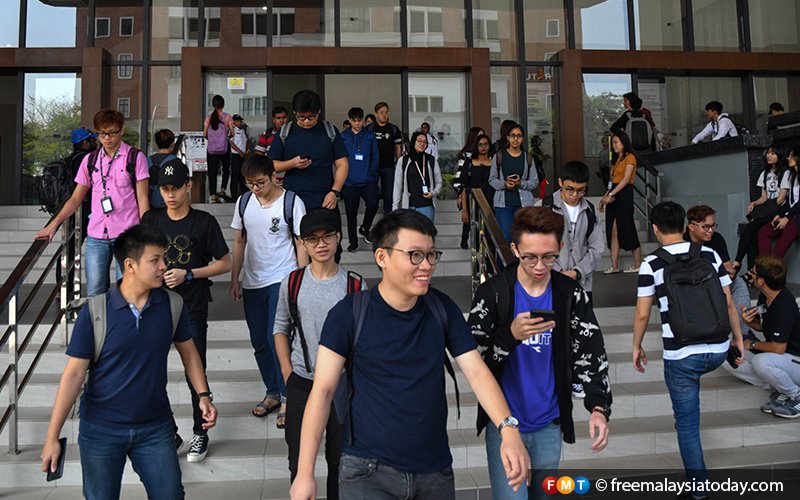Don’t confuse matriculation quota and Mandarin requirements

Prime Minister Dr Mahathir Mohamad spoke about matriculation being a “back door” entry to universities. But when the “back door” becomes the “main door”, what do we see of academic vigour and professionalism, going forward?
TK Chua, FMT
I refer to Education Minister Maszlee Malik’s argument on the matriculation quota and Mandarin requirements for jobs. I think his logic is misplaced.
When a student makes a grade but fails to gain admission into a matriculation programme which provides an easier route to university, he can rightly blame the government.
The logic is simple: there is nothing more he can do to get himself admitted, not with an additional distinction, speaking another language or excelling in sports or games. He must yield to others based on a policy which we believe is for the good of the nation.
I have said all along that a system of preference may be necessary to correct imbalances and inequality in society.
But have we abused the system or carred the preferences to a ridiculous level?
We say matriculation is meant for students from the poorer Bumiputera families. But have we checked that it has really been so since the programme’s commencement? Do we really have so many poor Bumiputera students filling up places in the matriculation programme?
I also believe that matriculation must provide education opportunities, not dilute standards.
When matriculation programmes provide easier access to universities and certain courses, how are we supposed to uphold academic standards and maintain the quality of our graduates?
Prime Minister Dr Mahathir Mohamad spoke about matriculation being a “back door” entry to universities. But when the “back door” becomes the “main door”, what do we see of academic vigour and professionalism, going forward? Are we supposed to cheapen everything just because we have an affirmative action programme to implement?
Don’t get it wrong: matriculation is not just a road to university like a diploma, STPM and so on as alluded to by the education minister. It is a less robust and an easier route.
Now, Mandarin requirements for certain jobs are not a discriminatory measure. They are a requirement of the job and involve a skill set that anyone can work on. If the Malays can learn English easily, I believe they can learn Mandarin, too.
The world has had Greek, Sanskrit, Latin, French and English as its main language before. Maybe the next wave is Mandarin. Malaysia shouldn’t look at Mandarin as a burden. We should embrace it, and the sooner we do this, the better for our people.
So, Minister Maszlee, please don’t confuse the two.
TK Chua is an FMT reader.

